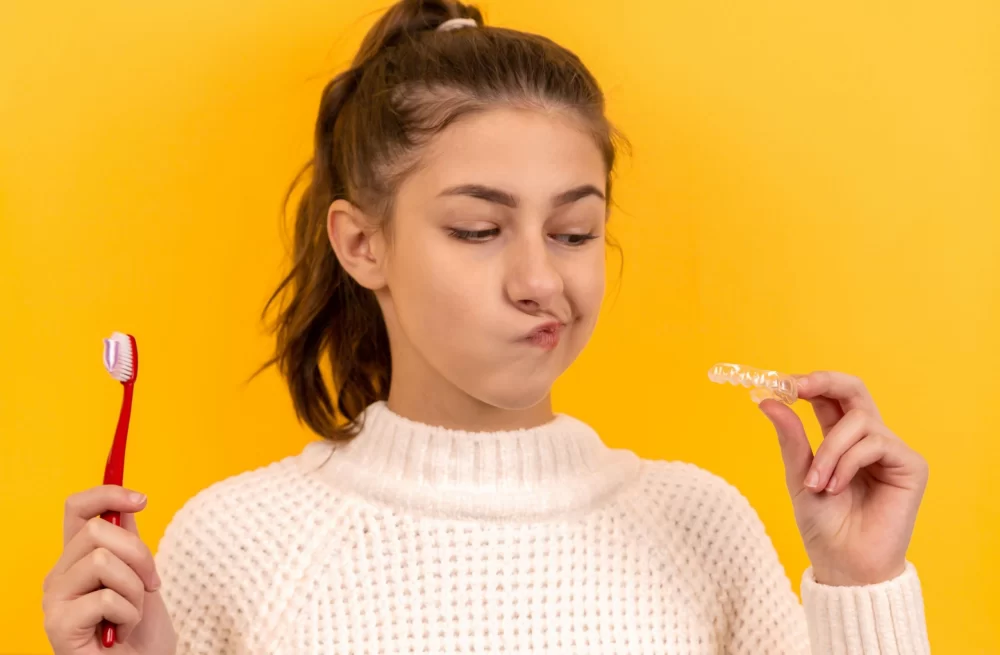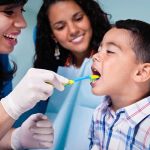
Best Dental Practices for Seniors
As I’ve gotten older, I’ve come to realize that taking care of my teeth requires a different approach than when I was younger. Aging brings with it some unique challenges for oral health, and it’s essential to adapt our dental habits to maintain healthy teeth and gums. Just like any other part of our body, our mouths need special attention as we age. Over the years, I’ve learned a lot about the best dental practices for seniors, and in this article, I’ll share the tips and practices that have helped me maintain my smile, along with some insights from my own dental experiences.
1. Regular Dental Checkups Are Crucial
One of the most important steps in maintaining oral health as a senior is scheduling regular dental checkups. As I’ve gotten older, I’ve noticed that my teeth require more attention, and that’s why I’ve made it a priority to visit the dentist every six months. Regular checkups allow the dentist to catch any potential issues before they become serious problems. Whether it’s tooth decay, gum disease, or something more complex, early detection can make a huge difference in preventing more invasive treatments later on.
During these visits, the dentist will not only perform a thorough cleaning but also check for signs of oral cancer, a condition that becomes more prevalent with age. Additionally, they can assess the health of any existing dental work, such as crowns or fillings, which may wear out or require replacement over time. I’ve found that these regular checkups not only keep my teeth healthy but also provide peace of mind knowing that any potential problems are being addressed early.
2. Brush and Floss Regularly
As I’ve aged, I’ve learned that brushing and flossing are even more important than before. At first, I didn’t think that my oral care routine needed to change, but over time I’ve come to realize that as we get older, our gums and teeth become more vulnerable to plaque buildup, gum disease, and decay. I’ve made it a habit to brush my teeth at least twice a day with a soft-bristled toothbrush and fluoride toothpaste. Brushing with fluoride toothpaste is key because fluoride strengthens tooth enamel and helps prevent cavities.
Flossing is just as crucial, if not more so. I’ve found that flossing removes food particles and plaque between the teeth, where a toothbrush can’t reach. This is especially important as our gums may start to recede with age, leaving more gaps between our teeth. I try to floss once a day to keep my gums healthy and free from plaque buildup, which can lead to gum disease. For seniors who have arthritis or limited dexterity, there are specialized flossers and tools available to make the process easier.
3. Use the Right Dental Products
Over time, I’ve realized that not all dental products are created equal. As a senior, it’s important to choose the right products that cater to my specific oral health needs. For example, I switched to a toothbrush with a larger handle, which makes it easier to grip. I also started using toothpaste designed for sensitive teeth, as I found that my teeth became more sensitive as I aged. Many seniors also experience dry mouth, which can increase the risk of cavities and gum disease. I learned that using a moisturizing mouthwash specifically for dry mouth can help keep my mouth hydrated and reduce discomfort.
When shopping for dental products, I make sure to choose those that have the American Dental Association (ADA) seal of approval. This ensures that the products are safe and effective. It’s also worth checking with your dentist to recommend specific products that will meet your unique needs, whether it’s for sensitivity, dry mouth, or the maintenance of dentures or other dental work.
4. Maintain a Healthy Diet
Aging often comes with changes in diet, and I’ve realized that what I eat plays a significant role in my oral health. I’ve learned that maintaining a healthy, balanced diet is essential for keeping my teeth and gums healthy. I try to include plenty of fruits, vegetables, and dairy products in my meals, as they provide important nutrients like calcium and vitamin D, which help keep my bones and teeth strong.
On the other hand, I’ve cut back on sugary and acidic foods and drinks, which can contribute to tooth decay and enamel erosion. I’ve found that drinks like soda and juice, which can be loaded with sugar, can harm teeth, especially if consumed frequently. I also try to limit snacking between meals, as frequent exposure to food and sugary drinks can increase the risk of cavities. Drinking water throughout the day also helps rinse away food particles and keep the mouth moist, which is especially helpful if you suffer from dry mouth.
5. Address Dry Mouth Issues
As I’ve gotten older, I’ve experienced dry mouth, a common problem for many seniors. Dry mouth can be caused by medications, certain health conditions, or simply aging. When I started experiencing dry mouth, my dentist explained that it could lead to an increased risk of cavities and gum disease because there’s less saliva to wash away food particles and bacteria. To manage dry mouth, I’ve made it a habit to sip water throughout the day, use saliva substitutes, and chew sugar-free gum to stimulate saliva production.
There are also mouthwashes and oral gels available that are specifically designed to help manage dry mouth. My dentist recommended a fluoride mouthwash, which helps keep my teeth strong and protects against decay. Keeping the mouth hydrated and moisturized is essential for seniors, and addressing dry mouth proactively can help protect oral health in the long run.
6. Be Mindful of Dentures and Dental Appliances
If you wear dentures or other dental appliances, it’s essential to take special care of them. When I first got dentures, I was surprised by how much maintenance they required. It’s important to remove dentures at night to allow your gums to rest and to clean them thoroughly to prevent plaque buildup. I also learned that it’s important to have regular checkups with my dentist to ensure that my dentures are fitting properly. Ill-fitting dentures can cause sores or irritation in the mouth, and they may even affect speech and eating habits.
For seniors who wear partial dentures or have dental implants, regular care is also necessary. Keeping the gums and remaining teeth healthy is crucial to supporting these dental devices. I make sure to clean both my teeth and dentures separately, and I follow my dentist’s advice on how to care for them properly. If you’re unsure how to care for your dentures or dental appliances, it’s best to consult with your dentist, who can provide guidance specific to your needs.
7. Stay Informed About Oral Health and Aging
Finally, one of the most important things I’ve learned is that oral health needs change as we age, and it’s essential to stay informed. I’ve made it a point to keep up with the latest research and advice about senior dental health. Many dental practices now offer specialized care for seniors, and my dentist regularly updates me on new products or techniques that can benefit my oral health.
As we age, we may need more frequent checkups or more specialized treatments, so it’s essential to maintain open communication with your dentist. If you have any concerns or experience changes in your oral health, don’t hesitate to reach out to your dental professional for advice and guidance. Staying informed about changes in your oral health can help you take control and ensure your smile stays bright and healthy for years to come.
Conclusion: A Lifelong Commitment to Oral Health
Taking care of your oral health as you age is not only about preserving your teeth but also about maintaining your overall health and quality of life. By following the best dental practices for seniors, you can ensure that your teeth remain strong, your gums stay healthy, and you can continue to enjoy life with a confident smile. Whether it’s through regular checkups, maintaining a healthy diet, or addressing issues like dry mouth, the key to maintaining good oral health is to take a proactive approach. With the right care and attention, seniors can enjoy good dental health for years to come.







 D3 Dental of Horsham4.0 (342 review)
D3 Dental of Horsham4.0 (342 review) Don C. Kalant Sr. DDS, FACD, FICD3.0 (32 review)
Don C. Kalant Sr. DDS, FACD, FICD3.0 (32 review) All Family Dental and Braces4.0 (689 review)
All Family Dental and Braces4.0 (689 review) Oral Surgery Hawaii4.0 (385 review)
Oral Surgery Hawaii4.0 (385 review) Spencer Dental & Braces4.0 (459 review)
Spencer Dental & Braces4.0 (459 review) Midwest Dental - Eagan4.0 (150 review)
Midwest Dental - Eagan4.0 (150 review) The Importance of Oral Health Education During Pregnancy for a Healthy Pregnancy
The Importance of Oral Health Education During Pregnancy for a Healthy Pregnancy Best Tips for Brushing Your Teeth Properly for Healthy Gums: Essential Techniques for Oral Health
Best Tips for Brushing Your Teeth Properly for Healthy Gums: Essential Techniques for Oral Health Why Skipping Dental Checkups Can Lead to Bigger Oral Health Problems
Why Skipping Dental Checkups Can Lead to Bigger Oral Health Problems Advantages of Porcelain Dental Restorations
Advantages of Porcelain Dental Restorations How Can Diabetes Cause Tooth and Gum Problems? Preventing and Managing Oral Health Issues
How Can Diabetes Cause Tooth and Gum Problems? Preventing and Managing Oral Health Issues Healthy Habits for Promoting Good Oral Health and Hygiene: Tips for a Healthy Smile
Healthy Habits for Promoting Good Oral Health and Hygiene: Tips for a Healthy Smile